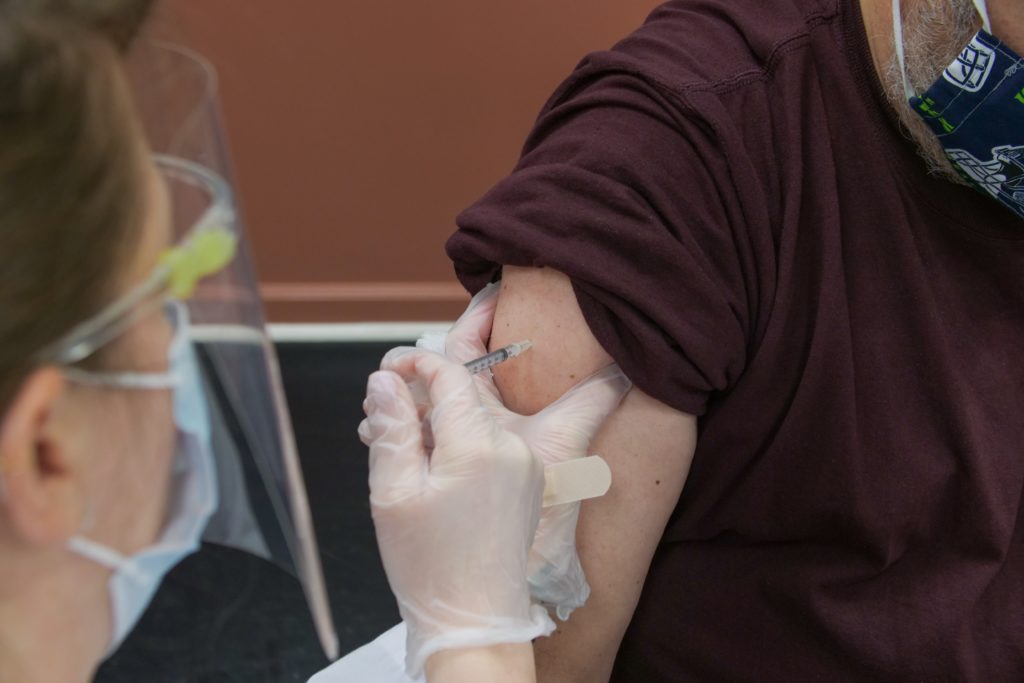A longer delay of up to 45 weeks between the first and second dose of the Oxford-AstraZeneca vaccine leads to enhanced immune response after the second dose, the latest research by the Oxford Vaccine Group has found.

They also found that a third dose given more than six months after the second dose leads to a substantial increase in antibodies and induces a strong boost to immune response against SARS-CoV-2, including variants.
Research on the Oxford-AstraZeneca vaccine, which is supported by the NIHR Oxford Biomedical Research Centre (BRC), indicates that a long interval between first and second doses does not compromise the immune response after a late second dose, and a third dose of the vaccine continues to boost antibodies against SARS-CoV-2. The results have been released in a preprint.
COVID-19 vaccine supply shortages are causing concerns in some countries about compromised immunity as the interval between first and second dose extends due to limited vaccine availability.
When examining the effects of a delay of up to 45 weeks between first and second doses in study participants, results demonstrated that antibody levels were increased after a delayed second dose. Additionally, a longer delay between first and second doses may be beneficial, resulting in an increased antibody titre and enhanced immune response after the second dose.
Lead Investigator Professor Sir Andrew Pollard, the Oxford BRC’s Co-theme Lead for Vaccines, said: “This should come as reassuring news to countries with lower supplies of the vaccine, who may be concerned about delays in providing second doses to their populations. There is an excellent response to a second dose, even after a 10-month delay from the first.”

Conversely, some countries are considering administering a third ‘booster’ dose in the future. Studying the impact of a third vaccine dose, the researchers found that antibody titres increased significantly with a third dose. T-cell response and the immune response against variants were also boosted.
“It is not known if booster jabs will be needed due to waning immunity or to augment immunity against variants of concern,” said Associate Professor Teresa Lambe, lead senior author for these studies. “Here we show that a third dose of ChAdOx1 nCoV-19 is well tolerated and significantly boosts the antibody response. This is very encouraging news if we find that a third dose is needed.’
Side effects of the vaccine itself were also found to be well-tolerated, with lower incidence of side effects after second and third doses than after first doses.
Further research is required to follow up with study participants who received third doses beyond the period that was part of the initial study.
Trial of vaccine against Beta variant commences
The Oxford vaccine team have also announced that vaccinations had begun on 27 June 2021 for a new phase in human trials to test a COVID-19 vaccine ‘AZD2816’ in volunteers against the B.1.351 variant of concern – commonly known as the Beta variant, which originally emerged in South Africa.
The Phase II/III trial, sponsored and led by AstraZeneca, will recruit approximately 2,250 participants across UK, South Africa, Brazil and Poland.
AZD2816 will be administered to individuals who have previously been fully vaccinated with two doses of the original Oxford-AstraZeneca vaccine or an mRNA vaccine, at least three months after their last injection. In non-vaccinated individuals, AZD2816 will be given as two doses, four or twelve weeks apart, or given as a second dose following a first dose of original Oxford-AstraZeneca vaccine four weeks apart.
For the UK booster study launch participants must have received two doses of an approved COVID-19 vaccine three to 12 weeks apart more than three months prior to the study.
The new vaccine has been designed using the same adenoviral vector platform developed by the Oxford researchers using the ChAdOx platform technology, with minor genetic alterations to the spike protein based on the Beta variant.
Professor Pollard said: “Testing booster doses of existing vaccines and new variant vaccines is important to ensure we are best prepared to stay ahead of the pandemic coronavirus, should their use be needed.”
Dr Maheshi Ramasamy, Principal Investigator at the Oxford Vaccine Group, said: ‘The UK vaccine roll-out programme has been incredibly successful at preventing hospitalisations and deaths, but we don’t know how long protection lasts.
“This study will provide vital evidence on whether further doses including ‘tweaks’ against new virus variants may be needed in the future.”